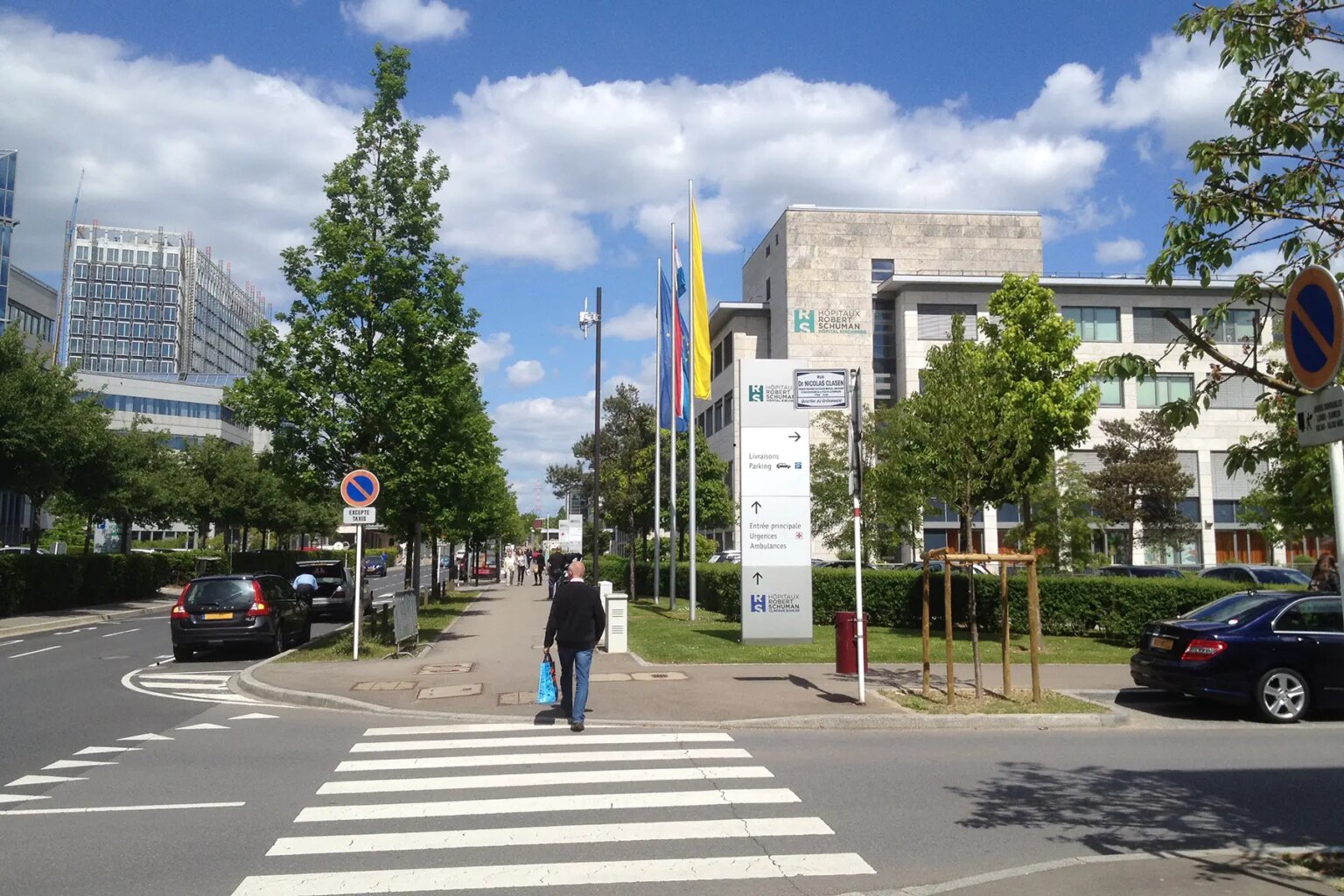When moving to Luxembourg, it is important to get your head around how the healthcare system works. More importantly, it pays to know the costs you will need to contribute from your salary and what proportion of your medical fees you will be able to claim back after getting treatment. It is also useful to know whether you will need to take out private health insurance, or whether state health insurance in Luxembourg is sufficient.
This helpful guide offers information on the following:
- The healthcare system and health insurance in Luxembourg
- Who needs Luxembourgish health insurance?
- Public health insurance in Luxembourg
- How to apply for public health insurance
- Private health insurance
- Health insurance costs and reimbursements
- Health insurance for unemployed or low earners
- Useful resources
Allianz Care
Allianz Care is a world leader in providing international health insurance. Their various premiums provide professionally designed solutions for a variety of expat lifestyles. So, wherever your life takes you, make sure you have the right health protection for you and your family with Allianz Care.
The healthcare system and health insurance in Luxembourg
Luxembourg’s healthcare system is one of the best quality and best-funded in Europe; the government spends around 6% of GDP on healthcare. Basic health coverage is available to all citizens of Luxembourg, with employees and employers both making contributions towards medical costs.

Public health insurance covers more than 90% of healthcare services. However, many expats seek to take out additional private insurance policies to cover the portion of medical fees not covered by the state.
Unlike many of its neighbors, Luxembourg doesn’t have specialist public and private hospitals. Instead, all hospitals in Luxembourg are managed by the Caisse Nationale de Santé (CNS). Residents can choose their own doctor, specialist, and hospital.
Who needs Luxembourgish health insurance?
All employees and self-employed workers must make social security contributions in Luxembourg, which in turn entitles them to state healthcare.
Healthcare taxes come out of wages at source, and employees and employers split the cost. The tax goes into the Luxembourg Health Offices of the CNS, or the Caisse de Maladie – which literally means disease fund.
The normal contribution amounts to about 2.8% of gross income from each side, up to a maximum contribution of €6,225. If you are starting work in Luxembourg, your employer must register you within eight days of starting work.
Public health insurance in Luxembourg
In Luxembourg, the healthcare system works on a reimbursement basis. Patients pay upfront and then submit receipts for consultations, treatment, and medicines for reimbursement. The amount of reimbursement depends on the type of treatment and whether you have a private insurance plan.
Who does public health insurance cover?
Working residents
- Employees: employees contribute to the state system through social security payments taken from their wages. This offers them access to the healthcare system.
- Self-employed workers, freelancers, and business owners: In Luxembourg, these groups have to pay the full percentage contribution; however, the amount varies based on profession and income.
Dependents
- Unemployed people: residents on unemployment benefits, retirement, or disability pensions have health insurance contributions deducted from their benefit payments.
- Spouses and children: all dependent family members are covered by family members who pay into the insurance system. Children are covered under their parents, and students are covered until the age of 27. Coverage includes most treatment by your general practitioner or specialists, any laboratory tests, prescriptions, and hospitalization. Read more in our guide to the healthcare system in Luxembourg.

Students and older adults
- Students: European Union (EU) nationals studying in Luxembourg will be covered by their European Health Insurance Card (EHIC) throughout their period of study. Non-EU students, however, may be required to take out a private health insurance plan prior to arrival; although their university can provide more detail. Students and unemployed adults under the age of 30 may apply for continued health insurance from the University of Luxembourg.
- Pensioners/retirees: EU, European Economic Area (EEA), and Swiss nationals who have reached retirement age in their home country are entitled to free healthcare in Luxembourg; as long as their pensions are in order to receive it. A long-term insurance fund (dépendence) is financed through a 1% tax withholding for employees; this also provides benefits towards the costs of long-term care in nursing homes or other extended care.
Different nationalities
- EU/EFTA nationals: EU nationals making social security contributions have the same rights as permanent residents
- Non-EU nationals: Non-EU/EEA nationals may have to provide proof of private health cover before they can obtain a visa. Foreigners coming to live in Luxembourg without working must produce proof of health insurance in order to obtain a residence permit. If you qualify for non-resident tax status, you may not be required to contribute to national social security. In this case, you will probably be covered by your employer’s healthcare plan.
If you are not eligible for public health insurance in Luxembourg, however, you will need to look into private or international health insurance plans.
What does public health insurance cover in Luxembourg?
Doctors appointments, hospital visits, and emergency treatment are all available through the public healthcare system, including appointments such as:
- Doctors and dentist appointments: Adults can usually claim back 88% of their costs (100% for children), or 80% for GP visits at home
- Hospital stays: You will usually need to pay a standard daily fee of €21.99; you can claim back other costs. This fee, however, does not apply to children or mothers within 12 days of giving birth.

Medicines are covered slightly differently, however. If you present your original prescription, you can claim back a percentage of your costs.
The amount you receive depends on the type of prescription, as follows:
- The standard rate of 80% is available on most medicines; however, the preferential rate of 100% is available for medicines that are designed to combat serious or chronic illnesses
- A reduced reimbursement rate of 40% applies on non-essential medicines such as therapeutic treatments
- EU citizens presenting an EHIC usually pay 50%, and pensioners pay 10%
Specialist care such as maternity care and eye-care is available through the state system, but there are caps on how much you can claim back. Along with treatment when outside of Luxembourg, and private rooms in hospitals, the cost of specialist treatments are among the main reasons residents take out additional private healthcare.
How to apply for public health insurance
To register for healthcare in Luxembourg, you must have a social security card that acts as your health insurance card; this is provided by the state, or the Centre Commun de la Sécurité Sociale (CCSS).
After registering for a residence permit at the CCSS, you will receive an application form asking about your personal details, your family members, and dependents. Fill out this form and send it back to the commune by post.
Documentation you need to present
The form will require a copy of a valid identification like a passport, proof of employment and residency, and a certificate of entitlement. The CCSS will look over your application form and send a social security card to the residential address in about three weeks.
Your Luxembourg social security card (carte de sécurité sociale) should be with you at all times. For example, you will need to present this during doctor visits, medical and pharmacy visits, and when collecting prescriptions. The card, with your name and unique social security ID number, shows that you are eligible for all medical treatment and prescriptions.

If you have an EHIC, then it is valid for medical assistance in any EU country. Read more in our guide to the social security system in Luxembourg.
Private health insurance
Who should get private health insurance?
Many people in Luxembourg take out private health insurance with a non-profit health insurance agency or a mutual association (mutuelles) affiliated with the Ministry of Social Security.
As with other forms of insurance in Luxembourg, private health insurance is big business. About 75% of residents have some extra private insurance to cover things that the state might consider non-essential. The big plus of having additional insurance is to cover unforeseen medical costs in a foreign country or unexpected hospitalization.
Many employers in Luxembourg offer supplementary cover as a benefit of employment. A mutuelle pays the portion of your medical fees that state healthcare doesn’t cover. In addition, it may offer extended coverage.
The advantages of getting private health insurance coverage in Luxembourg
Private healthcare can cover your costs for things such as hospitalization, eye-care, dental treatment, and medical services outside Luxembourg. Because these costs can be very expensive, it is beneficial to take out a private policy to cover your needs.
Cigna Global
Want access to the best private medical services in Luxembourg? Speak to the healthcare professionals at Cigna Global today and find a policy that’s right for you. Take advantage of their global network of doctors, specialists, therapists and more with coverage tailor-made for you and your family. If you’re starting a new life in Luxembourg, get peace of mind with Cigna Global.
For example, the contribution towards the cost of childbirth can be expensive if you want a private room. This can quickly run into thousands of euros, however a private insurance plan will cover these costs. Eye-care can also rack up a hefty charge, as the state only reimburses €49 for lenses and €30 for frames.
How does private health insurance work?
The private insurance system in Luxembourg works similarly to the public system. The provider and your insurer may settle some treatments directly between them. However, other treatments will require you to pay your contribution and then claim it back from the insurer.
How to choose a health insurance provider
Private healthcare providers offer all sorts of different policies, ranging from basic cover for your contributions towards treatment to more comprehensive packages.
Many private plans also include 24-hour customer care, instant hospital access, and five-day reimbursements as part of its standard coverage. Despite the fact that standard cover includes inpatient, outpatient, cancer treatment, and psychiatric cover, more expensive packages include things like maternity care cover.

Insurers will generally offer optional add-on modules to their standard packages, including eye-care, dental plans, and yearly full health checks. How much you will pay for private healthcare depends on a series of factors. These include your age, your medical history, and the level of cover you will require; therefore it is best to shop around for health insurance quotes to meet your individual needs.
Insurance companies in Luxembourg
Many expat-friendly health insurance companies operate in Luxembourg, such as:
APRIL International
Looking for expat-friendly health insurance in Luxemobourg? APRIL International has a long history of providing health coverage tailored to the unique needs of the expat lifestyle, ensuring peace of mind for you and your family. Whether you’re relocating to Luxemobourg or simply staying short-term, APRIL International has the right policy for you.
Health insurance costs and reimbursements
In Luxembourg, patients pay their fees up-front and then submit receipts for consultations, treatment, and medicines for reimbursement. To get a reimbursement, you will need to send the invoice from the doctor or hospital to the CNS.
In the public system, the process takes about three weeks, and you can expect to receive the cash directly into your bank account. Your healthcare provider will also inform you of the appropriate reimbursement rate.
The Caisse de Maladie state healthcare fund department decide on how much you will pay towards the costs of your care.
Health insurance for unemployed or low earners
All residents of Luxembourg are entitled to social welfare aid to help them achieve a good standard of life. The social welfare office in Luxembourg says that if a resident has no other insurance, it will cover the costs of disease, handicaps, or age-related illness. This also includes medical intervention and hospitalisation.
To apply, you will need to contact the local social welfare office in your commune. The rules can be a little complicated; as a result, you should read the full guide on the government’s social welfare website.




